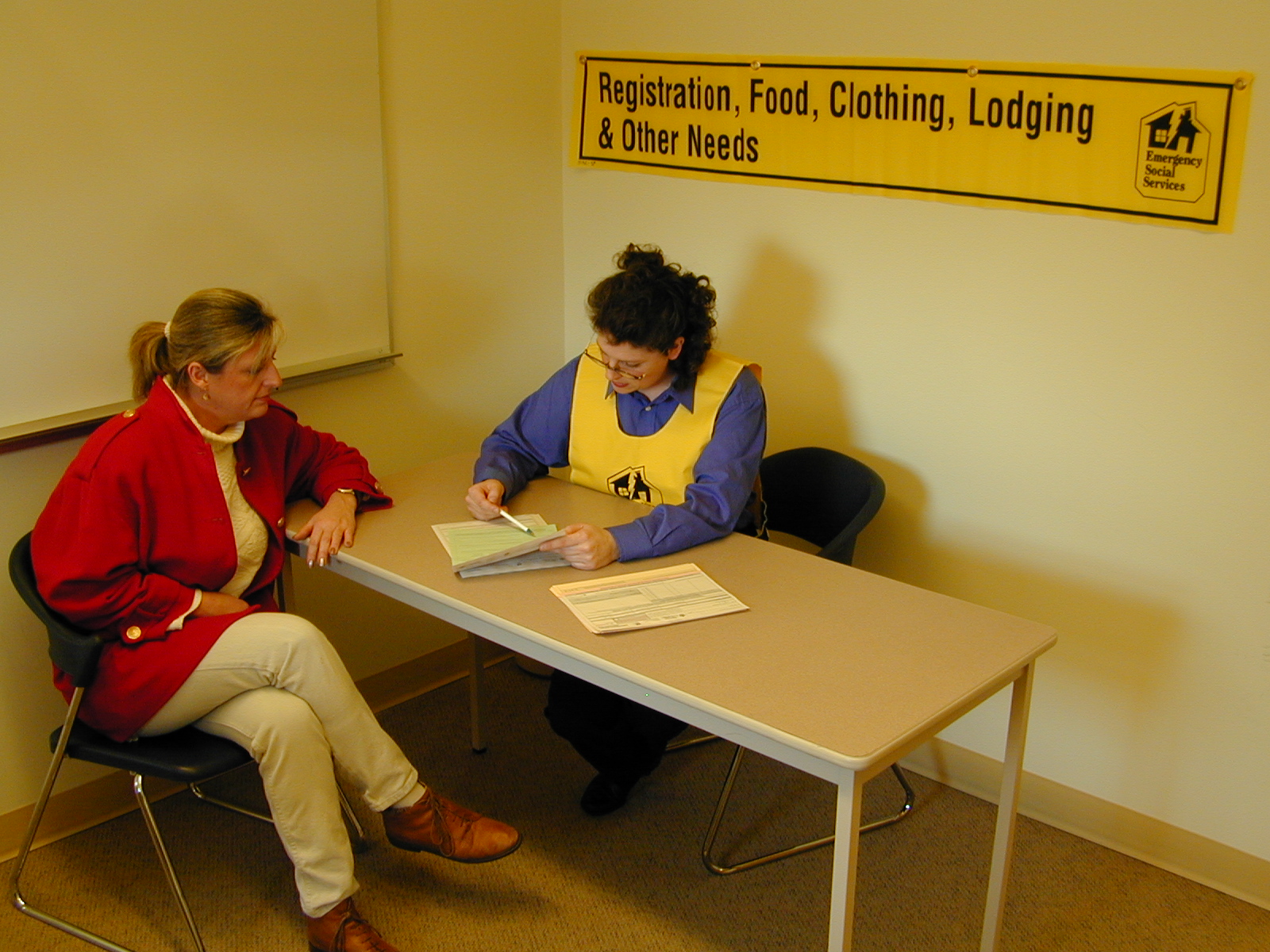SS requires management and administrative skills balanced with a great deal of understanding, caring, and empathy in order to provide both evacuees and ESS responders with the needed resources. Services may be provided at the site for small-scale events or at a RC for larger responses and may include those described below.
- Family Reunification
- Referrals for Food, Clothing & Lodging
- Emotional Support
- Information
- Transportation
- Volunteer Services
- Communications
- First Aid
- Health Services
- Pet Services
- Recreation
- Child Care
- Multicultural Services
Registers evacuees, takes inquiries about people’s safety and whereabouts, and assists in reuniting families
Provides Referral Forms (see RCOG) for groceries or meals to evacuees who are without food or food preparation facilities
Provides essential clothing, blankets and personal hygiene items for evacuees
Provides safe, temporary accommodations for those who are forced from their homes and who are without insurance or unable to immediately access their insurance policies and unable to stay with family or friends
Provides and coordinates emotional support for evacuees and responders, and provides referrals to appropriate human services agencies when needed
Ensures that accurate, up-to-date, relevant information and print materials are available for evacuees and responders
Arranges transportation for evacuees to hotels, motels, or group lodging facilities as required
Coordinates assignments for trained volunteers and trains walk-in volunteers to assist where needed
Ensures the effective flow of key information in and out of a RC
Provides basic first aid support and makes referrals to appropriate health care facilities as necessary
Assists in dealing with public health issues, such as communicable diseases, as well as ensuring safe water, food, and sanitation
Assists with the care of domestic pets while their owners are waiting for services in the RC
Organizes and provides activities for all ages and special-needs groups
Arranges for qualified child care workers to provide activities in a supportive environment for young children who have experienced a disaster. Some RCs may provide a child care area for parents to care for their own children
Oversees children who arrive at a RC without a parent or guardian
Provides multicultural services as needed, such as translators, ethnic foods, clothing, etc.
ESS is generally available for a maximum of 72 hours. During these first 72 hours evacuees should immediately plan their next steps by contacting their insurance agents, families, and friends or accessing other possible resources. Should further assistance be required, only under extenuating circumstances, a request is sent through the local Emergency Operations Centre (EOC) to the provincial or territorial ESS organization (in BC it’s EMBC) authorizing an extension of the services.


